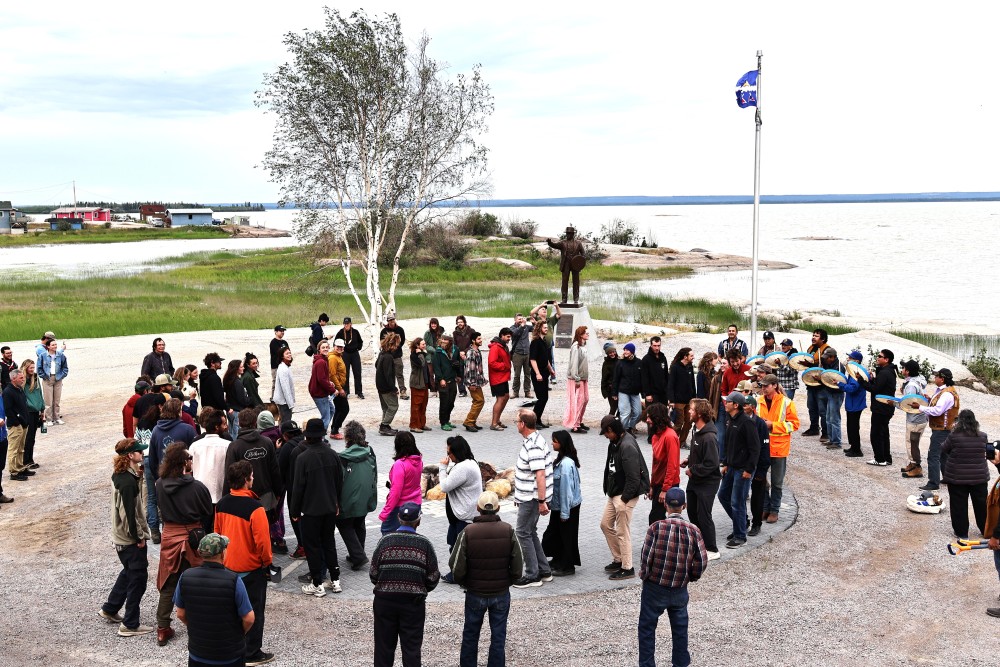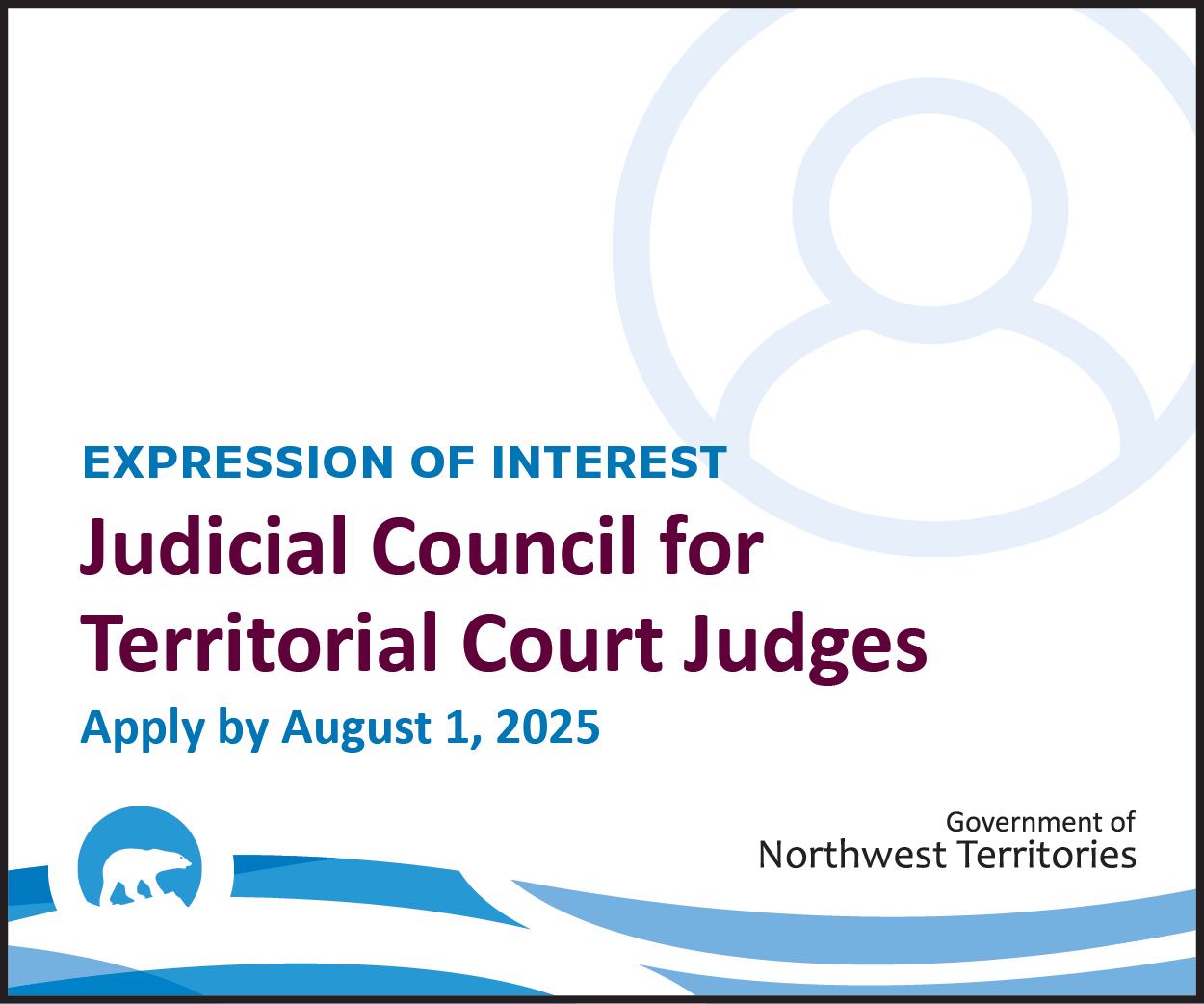Elder Michel Louis Rabesca says trees are an important part of the Tłı̨chǫ way of life.
“The tree provides everything: warmth, shelter, everything for our people,” a translator described Rabesca as saying in Tłı̨chǫ Yatıì.
“We live off the land. We know that the land provides lots, it provides food and the trees also provide everything for us. But right now we’re losing it, slowly we’re losing it because of climate change.”
Rabesca made the remarks on Saturday morning during an opening ceremony for what the Tłı̨chǫ Government says will be the largest reforestation effort ever undertaken in the Northwest Territories.
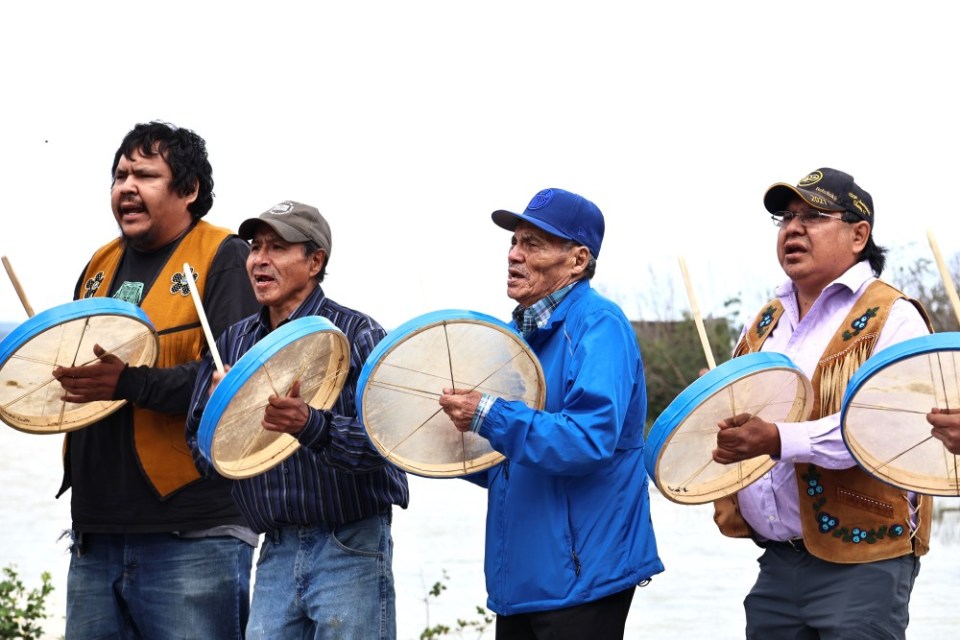 Tłı̨chǫ drummers perform in Behchokǫ̀. Elder Michel Louis Rabesca is in the centre in blue. Emily Blake/Cabin Radio
Tłı̨chǫ drummers perform in Behchokǫ̀. Elder Michel Louis Rabesca is in the centre in blue. Emily Blake/Cabin Radio
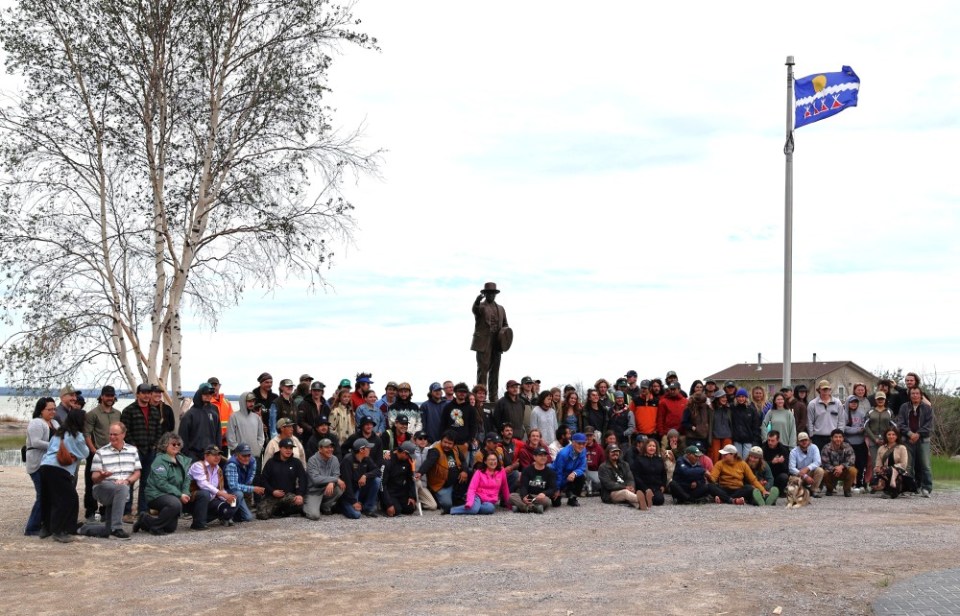 A group photo at the reforestation project celebration in Behchokǫ̀. Emily Blake/Cabin Radio
A group photo at the reforestation project celebration in Behchokǫ̀. Emily Blake/Cabin Radio
Over the next three weeks, dozens of tree planters from across Canada will be planting 1.4 million seedlings around Behchokǫ̀, Russell Lake and James Lake.
The seedlings were grown from locally harvested seeds.
The project is part of the Tłı̨chǫ Government’s response to the increasing frequency, size and intensity of wildfires and their impact on the land, wildlife and communities.
In the summer of 2023, a devastating wildfire forced residents of Behchokǫ̀ to evacuate and destroyed four homes in the community alongside more than a dozen structures in the area.
By the end of August that year, NWT Fire said the massive wildfire had burned 167,082 hectares of land. Burn scars and blackened trees can still be seen alongside Highway 3 and the road to Behchokǫ̀.
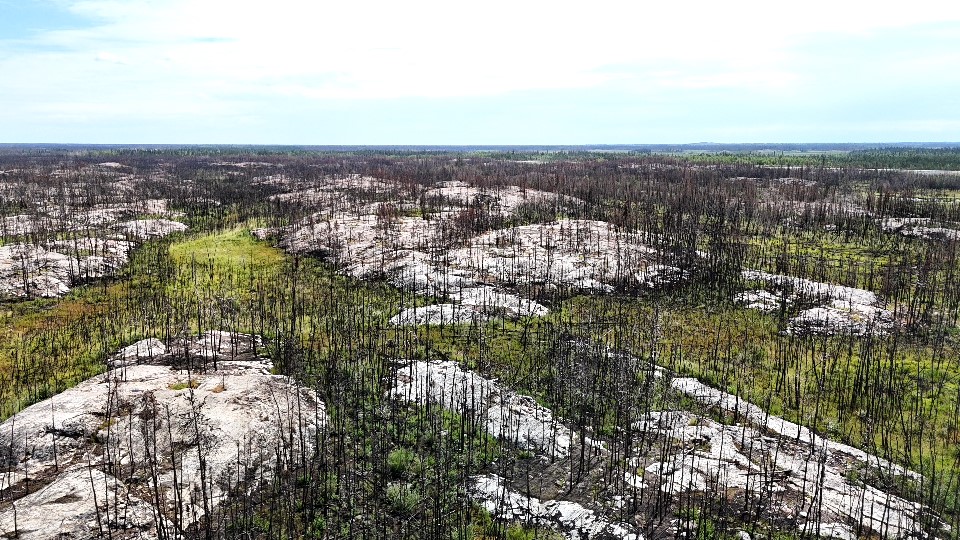 Burnt trees around Behchokǫ̀ in July 2025. Emily Blake/Cabin Radio
Burnt trees around Behchokǫ̀ in July 2025. Emily Blake/Cabin Radio
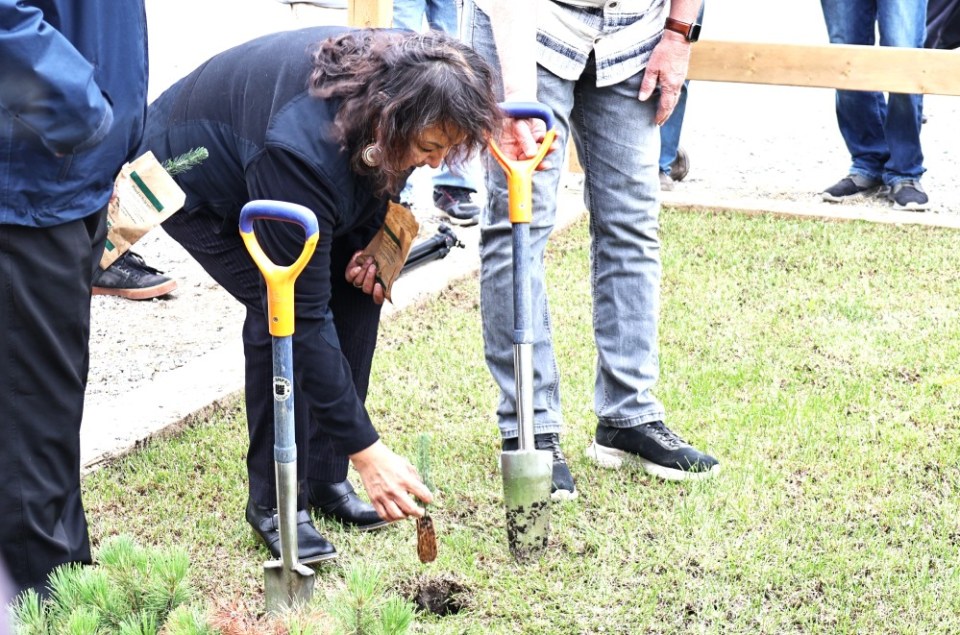 Behchokǫ̀ Chief Bertha Rabesca Zoe plants a seedling outside of the community’s cultural centre. Emily Blake/Cabin Radio
Behchokǫ̀ Chief Bertha Rabesca Zoe plants a seedling outside of the community’s cultural centre. Emily Blake/Cabin Radio
“We know fire is part of the natural cycle, but with climate change, fires are burning hotter and more often than ever before,” newly elected Behchokǫ̀ Chief Bertha Rabesca Zoe said on Saturday.
“Since that time, it’s been two years now, and we’ve lived surrounded by charred forests, a painful reminder of that unforgiving summer.”
Tammy Steinwand-Deschambault, director of the Tłı̨chǫ Government’s department of culture and lands protection, also said the land is not coming back the way that it used to and forests are struggling to quickly regenerate on their own.
She said Tłı̨chǫ language, culture, identity and history is deeply tied to the land.
“The land has always been more than a place. It is our teacher, our provider and the heart of who we are. For as long as anyone can remember, Tłı̨chǫ people have lived in relationship with the land and the environment, the animals, the wildlife. Our precious land has continually supported and nourished us,” she said.
“It is time for us as Tłı̨chǫ people to give back, to support the land that has supported us for so long.”
Rabesca Zoe and Steinwand-Deschambault said the tree planting project will help to restore the forest and ensure the land remains strong for wildlife and future generations.
“I believe the spirits of our ancestors will proudly accompany us along this journey,” Steinwand-Deschambault said.
“Our ancestors taught us to live in balance with nature. Now, in a changing climate, we are ready to learn new skills and rise to new challenges,” Rabesca Zoe said.
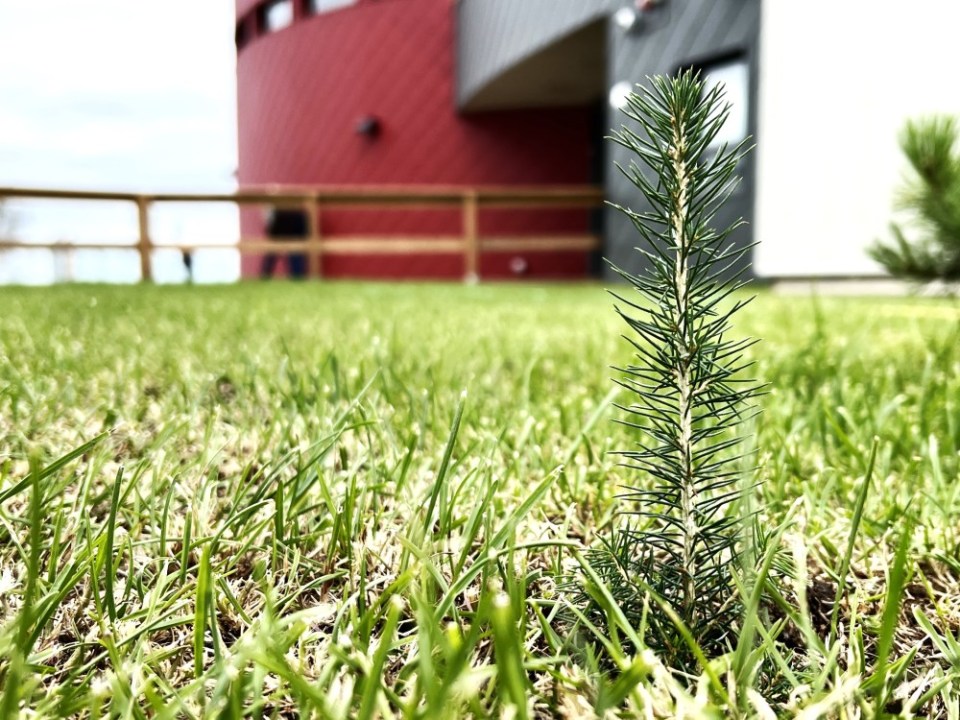 A freshly planted seedling outside of Behchokǫ̀’s cultural centre. Emily Blake/Cabin Radio
A freshly planted seedling outside of Behchokǫ̀’s cultural centre. Emily Blake/Cabin Radio
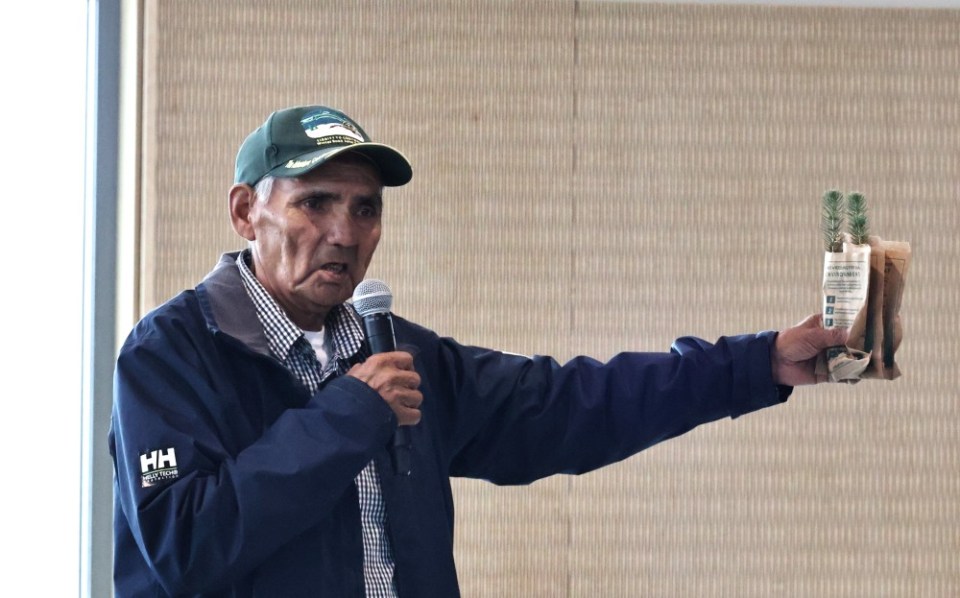 Elder Joe Rabesca holds seedlings he says he plans to plant near his home in Behchokǫ̀. Emily Blake/Cabin Radio
Elder Joe Rabesca holds seedlings he says he plans to plant near his home in Behchokǫ̀. Emily Blake/Cabin Radio
The celebration at Behchokǫ̀’s cultural centre saw tree planters join a drum dance with Tłı̨chǫ Elders, leaders, staff and other community members.
Chief Rabesca Zoe and Elder Joe Rabesca each planted seedlings outside of the centre.
Rabesca said he also plans to plant some seedlings near his home.
The Tłı̨chǫ Government says this summer’s tree planting effort is part of a larger six-year plan to plant 13 million trees across Tłı̨chǫ lands.
In remarks shared on his behalf at Saturday’s celebration, Tłı̨chǫ Grand Chief Jackson Lafferty, who was unable to attend in person, said “there is much work ahead to heal and restore our land.”
“We are embarking on a truly remarkable and transformative journey,” he stated.
“These trees will protect our communities through Firesmart planting and help restore the forests that sustain various wildlife, including caribou, and all who rely on this land.”
Related Articles

